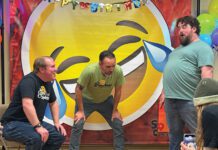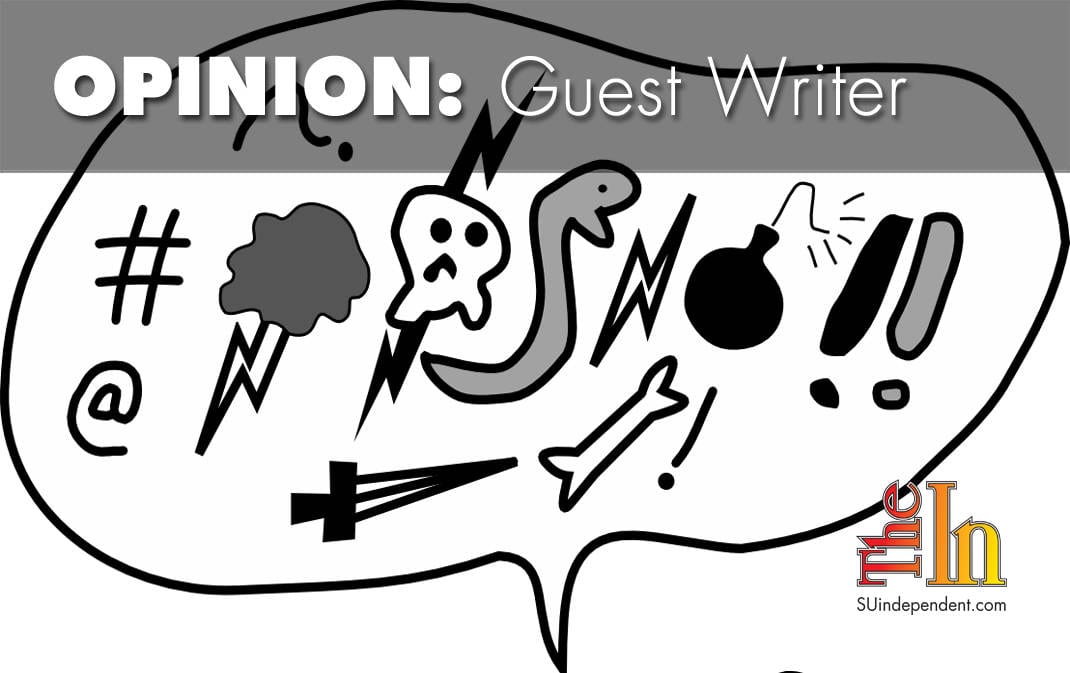 They didn’t dim the audience lights.
They didn’t dim the audience lights.
That was my first thought as I stood on Dixie State University’s main theater stage and surveyed the audience — a medley of students, faculty, and community members — a pleasant surprise of a turnout for the opening night of The Vagina Project’s third annual interdisciplinary event, a project that celebrates healthy sexuality and shares research, performances, and art related to this year’s theme: “I am more than.”
As I anchored myself before the microphone, I wondered, “Should I have a disclaimer?” Instead, I cracked some joke about doing the wave, the silence reminding me why sometimes I should refrain from jokes in general. I mean, they had just listened to how attachment style in infancy affects sexual relationships, so maybe I just need to work on my timing.
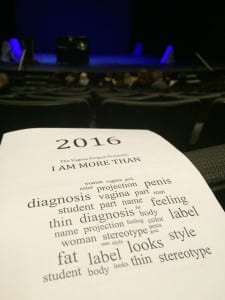 But — I’ll say it — I was nervous. Not nervous because I was about to share intimate personal details with strangers, and not because I was about to share those details via spoken word poetry or that I was about to bare my theatric soul for a hundred people. Those things are second nature to me; I’m used to it; I enjoy it.
But — I’ll say it — I was nervous. Not nervous because I was about to share intimate personal details with strangers, and not because I was about to share those details via spoken word poetry or that I was about to bare my theatric soul for a hundred people. Those things are second nature to me; I’m used to it; I enjoy it.
No, I was anxious because I thought my content might cloud my purpose.
Having been part of Southern Utah’s slam poetry scene for over a year and having seen many performances, I knew that people took offense to certain words, regardless of that word’s context, purpose, or intended effect. I’d seen spectators shut down or even get up and walk out of a venue after hearing specific words spoken on the stage. Later, I would hear them confess: “I don’t even remember what the poem was about, because I wasn’t paying attention, but using that word was inappropriate.”
That word. You’ll have to try to follow me here because I can’t write it. But when everything boils down, it really isn’t a specific word; it is any word. A word is a word is a word. If you see it enough times, say it enough times, it loses meaning; it loses its power. It becomes a combination of letters.
But I didn’t say it over and over and over. I said it once, and I was anxious that my it would be anything but diluted. And while classified under “offense language,” I began to wonder why we shun certain words into the corner, saying, “Bad word, you’re offensive, go over there by yourself.”
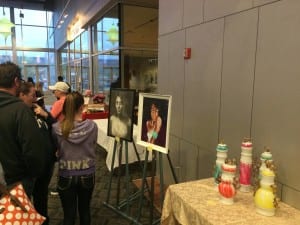 The thought reminded me of one of my first boyfriends. He had come over to my house for my seventeenth birthday party, where he met my father for the first time. Slapping my father on the back, my boyfriend said, “Hey, bud, how’s it going?”
The thought reminded me of one of my first boyfriends. He had come over to my house for my seventeenth birthday party, where he met my father for the first time. Slapping my father on the back, my boyfriend said, “Hey, bud, how’s it going?”
I was devastated, mortified (and whatever other descriptors are appropriate to explain a seventeen year old’s embarrassment). My father — a reserved, conservative man — slowly raised his eyebrows in response to his new nickname and (thankfully) remained quiet on the matter.
Here, the innocent, affectionate, playful word “bud” had been reduced to an insult. Both my father and I (though clearly not my boyfriend) had sent “bud” to the disciplinary, “offense language” corner.
At its base, we use language to communicate. Beyond simple definition, a word’s context, purpose, and intended effect are the only aspects that a speaker can play with in order to effectively and accurately transfer ideas without miscommunication. The problem arises when a listener or reader views said word removed of all it has to stand on, and replaces the foundation with their own purpose — or refuses to acknowledge the context that surrounds the word, as was the case with the spectator who confessed to not listening.
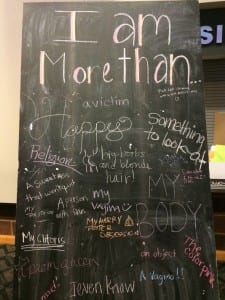 I never did offer the audience a disclaimer that night. Instead, I explained what spoken word poetry was before I delved into my performance. No one tapped out. No one left. Afterwards, students and community members alike confessed that it was moving, beautiful, intense; they admitted to getting chills.
I never did offer the audience a disclaimer that night. Instead, I explained what spoken word poetry was before I delved into my performance. No one tapped out. No one left. Afterwards, students and community members alike confessed that it was moving, beautiful, intense; they admitted to getting chills.
I was unabashedly proud — not of myself but of my audience. I had the honor of speaking to an audience who didn’t just hear; they listened. That night, I said “B” words. I said “C” words. I said words like “beautiful” and “complex.” My audience listened — listened to my words, my context, my purpose.
I pulled those words out of the corner, told them, “Here, you can be beautiful and complex, too.”

